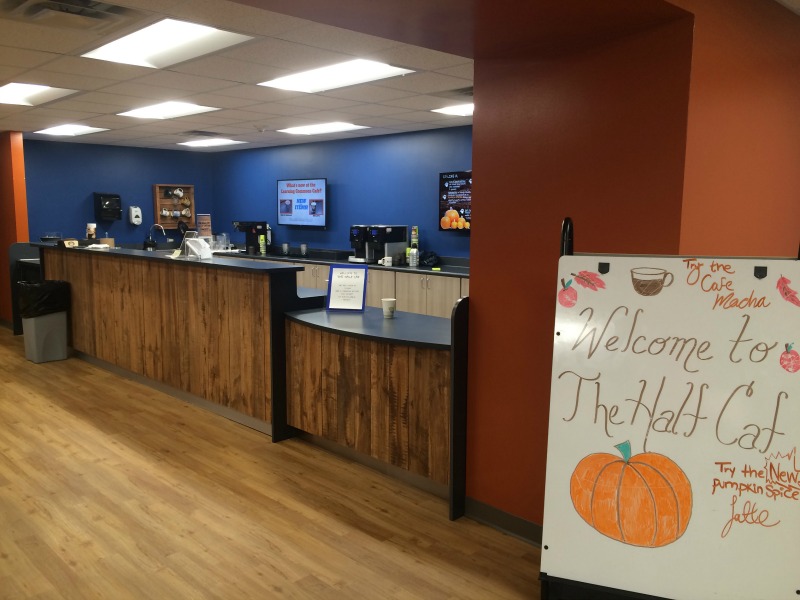A different kind of addiction
With the addition of a coffee shop in Naperville North’s new Learning Commons, students will have access to caffeine throughout the day without restriction. However, with freedom comes responsibility.
Deanna Nesci, a health teacher at Naperville North, thinks students need to be careful with their intake.
“Typically people don’t think of [caffeine] as a drug because it is meant for creating alertness, concentration and keeping people awake, but it is,” said Nesci.
Caffeine is a natural drug, produced inside of the seeds and leaves of many different plants, but teens don’t always realize how addicting it really is. According to Nesci, it is similar to cocaine as it acts as a stimulant and increasingly builds tolerance.
Caffeine tends to be introduced to kids in the form of soda or other foods such as chocolate or candies. Just like any other drug, this can cause an addiction from the first dose. According to kidshealth.org, around 300 mg of caffeine is the maximum amount that should be consumed a day. To put this in perspective, an 8 oz cup of coffee contains 95 mg of caffeine. Meaning, if a person drinks three 8 oz cups of coffee a day, they are dangerously close to the limit.
With an exciting new coffee shop in the heart of NNHS, students need to realize caffeine should be taken in moderation. According to healthline.com, the immediate effects of caffeine are jitters and hyper activeness because it is a stimulant. However, there can be very severe long-term consequences if one chooses to abuse caffeine. Too much caffeine can have detrimental effects on all crucial body systems. It can contribute to bone thinning, infertility, hallucinations, and more.
Nesci said the addition of the Half Caf will add to the ambiance of the new Learning Commons and won’t be detrimental to students’ caffeine intake, assuming they won’t have more than one cup. But junior Ella Bochenski, a coffee lover herself, thinks otherwise.
“[The cafe] will definitely increase the student’s caffeine intake because of the new availability. I would use the cafe maybe two to three times a week,” said Bochenski.
Already, students are certain caffeine intake is increasing, and it’s not just long-time coffee drinkers. Bochenski said one of her friends had only been trying out coffee because of the new cafe. If one is new to coffee, they should know exactly what is being put into their body before they become dependent on the substance.
That being said, if one decides to start drinking coffee, or already does, they should consume it mostly in the morning. When used later in the day, Nesci said teens can get into a dangerous cycle. When used in the afternoon, caffeine can drastically affect a sleep schedule, causing the drinker to be sleep deprived and want even more coffee in the morning. Caffeine is not the cure for a lack of sleep, as it should only aid alertness.
“Caffeine can help to stay awake because sleep is a huge issue for teenagers, but I worry about them over consuming,” says Nesci.
According to healthline.com it is possible to build a tolerance to caffeine and even overdose. Teenagers must realize that it is very possible to become addicted to this substance, even though it seems harmless. The headaches and irritability from withdrawal are all examples of the effects of addiction.
Even though caffeine can keep teens awake and alert,it is best to consume in moderation, especially at the right times. Caffeine is a powerful drug and should be recognized as one. Naperville North and the new coffee shop should do their part in informing students on how much caffeine is being put into each cup they sell and encourage intake restrictions. No one should underestimate the power of any drug, and caffeine is no different.

Audrey is a senior starting her second year on The North Star, and her first year as Managing Editor. She is looking forward to gaining valuable management...











Sakuni • Dec 21, 2016 at 11:08 am
Great article, Audrey.